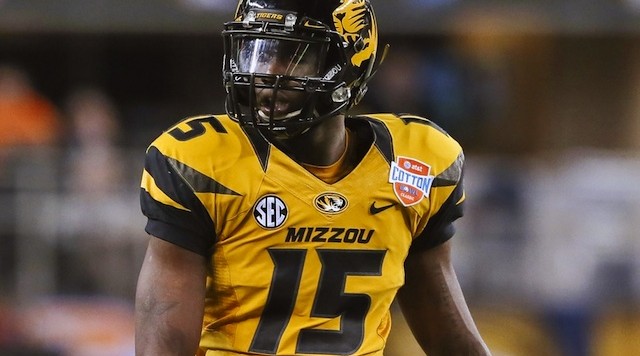Under the standards of the NCAA’s “runoff rule,” the requirements for obtaining a waiver of eligibility are pretty clear. For those acquainted with the morass of rules that constitute the law of the land in college sports, the runoff rule almost looks refreshingly simple.
If the reports that Missouri is supporting Dorial Green-Beckham’s request for eligibility under the rule prove true, this presents a cut-and-dry situation for the Association. Assuming that every i is dotted and every t crossed, to deny such a request would put the NCAA in the position of saying Missouri – one of its bosses – is lying. On the other hand, poll college football fans on the matter, and I suspect they’d generally agree with my colleagues Matt Zemek and Terry Johnson.
Such is life under the thumb of a giant bureaucracy like the NCAA, which carries out its marching orders from the very schools it proposes to govern. Tick off the right box with the right shade of ink in your pen, then move on to the next station.
From a common sense standpoint, that Green-Beckham would be allowed to play right away makes for a tough circle to square when a walk-on transfer has to sit out a year. Furthermore, the Ray Rice controversy in the NFL has rightfully magnified the spotlight on domestic violence issues among athletes. In that kind of environment, it should come as no surprise that this case would generate more than a little consternation among the general public.
That part of this episode deserves every ounce of the energy spent discussing it, but I hope a more subtle aspect of this doesn’t get lost. Green-Beckham’s situation represents a classic case of the conflict between writing effective rules and the basic rights that we determine should be afforded to college athletes.
As anyone familiar with the lawmaking process knows, there’s an inherent tension between writing a statute that is easy to enforce and one that is draconian. A blanket rule requiring all transfers to sit out a year is easiest for the NCAA to enforce (and is coming next year). On the other hand, few would argue that the impulses behind carve-outs for special circumstances are legitimate, getting runoff from a program being one of them.
Special exceptions such as the runoff rule necessarily give rise to situations such as Green-Beckham’s: Despite meeting the standards set forth by the rule, people question whether the spirit of the law is being compromised. (Think Jeremiah Masoli’s application to play at Ole Miss under the graduate transfer rules a few years ago.)
At some point, though, we have to get comfortable with the idea that there are always going to be trade-offs built into the rules governing college athletics. If we want athletes to have basic rights that we think they deserve as a matter of fairness, we have to accept that there will be instances in which we don’t like the outcomes.

